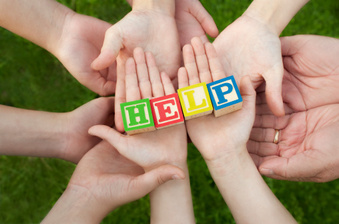
When challenges at home or school start to get in the way of those gifts being shared, creating rifts in relationships and friction in the family, working closely with a play therapist can help your child and family thrive, sometimes for the first time.
Our mission in supporting children is to help each child’s unique gifts be seen and their needs to be met. We believe that many of the children we see these days with learning and sensory differences or emotional challenges are here to teach us a more integrated way of educating and working in the world. Their job is to push us to explicitly understand and value things that have in the past gone unnoticed or deemed unimportant.
In individual play therapy, We create an environment in which your child can experience him/herself deeply, learn skills to navigate his world with success and fulfillment, and nurture his/her unique essence so that the fruits of her existence will move this world forward in it’s evolution.
Through a compassionate and understanding relationship, We work directly with your child to help him/her feel fully understood and develop communication skills and strategies to deal with challenging emotions. Through a collaborative relationship with you, the parent or caregiver, we uncover the roots of the problem and discover practical tools for meeting the challenges of parenting. As we support your family along the journey, each member has the opportunity to grow as an individual and as a harmonious unit.
Our mission in supporting children is to help each child’s unique gifts be seen and their needs to be met. We believe that many of the children we see these days with learning and sensory differences or emotional challenges are here to teach us a more integrated way of educating and working in the world. Their job is to push us to explicitly understand and value things that have in the past gone unnoticed or deemed unimportant.
In individual play therapy, We create an environment in which your child can experience him/herself deeply, learn skills to navigate his world with success and fulfillment, and nurture his/her unique essence so that the fruits of her existence will move this world forward in it’s evolution.
Through a compassionate and understanding relationship, We work directly with your child to help him/her feel fully understood and develop communication skills and strategies to deal with challenging emotions. Through a collaborative relationship with you, the parent or caregiver, we uncover the roots of the problem and discover practical tools for meeting the challenges of parenting. As we support your family along the journey, each member has the opportunity to grow as an individual and as a harmonious unit.
What is Play Therapy?

Children experience big emotions like anger, sadness, frustration, and confusion the same as we all do. Since verbal and cognitive skills do not fully develop until adulthood, understanding exactly what your child is experiencing and how to help can at times be quite a challenge, causing behavioral outbursts, overwhelm in parents, and distress at school. Difficulties your child experiences at home or school are often expressed through changes in your child's behavior and play. Understanding what your child is communicating and how to respond is what a play therapist is trained to do.
The natural language of children is play and behavior. A trained play therapist is like a translator from the world of the child to the world of adults.
As a play therapists we enter into your child's world from his or her perspective so that we can understand his or her experience. In the context of this caring, supportive relationship, we begin to identify and understand what your child is experiencing and develop better ways to express and cope with those feelings. This in turn supports your child's self-esteem, aiding in the development of pro-social behaviors that more effectively meet his/her needs and lead to positive feedback from others. Comprehensive support for these positive changes is provided through weekly play therapy sessions, consultations with parents, and contact with your child's teachers and other specialists. In this way the entire system around your child can learn and integrate new tools to affect lasting change.
The natural language of children is play and behavior. A trained play therapist is like a translator from the world of the child to the world of adults.
As a play therapists we enter into your child's world from his or her perspective so that we can understand his or her experience. In the context of this caring, supportive relationship, we begin to identify and understand what your child is experiencing and develop better ways to express and cope with those feelings. This in turn supports your child's self-esteem, aiding in the development of pro-social behaviors that more effectively meet his/her needs and lead to positive feedback from others. Comprehensive support for these positive changes is provided through weekly play therapy sessions, consultations with parents, and contact with your child's teachers and other specialists. In this way the entire system around your child can learn and integrate new tools to affect lasting change.
